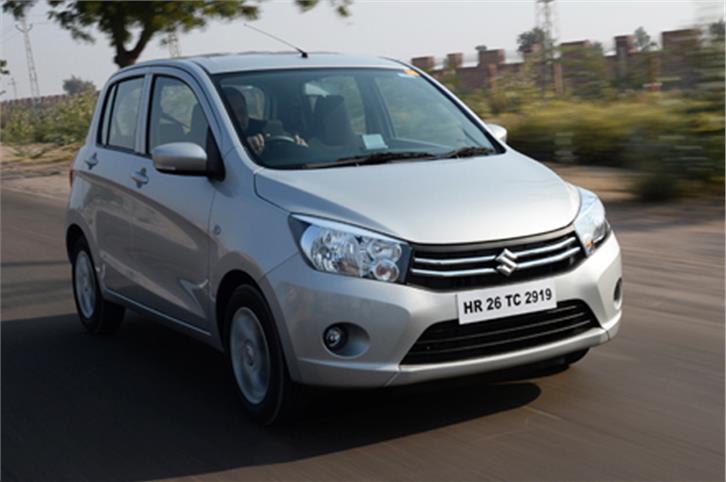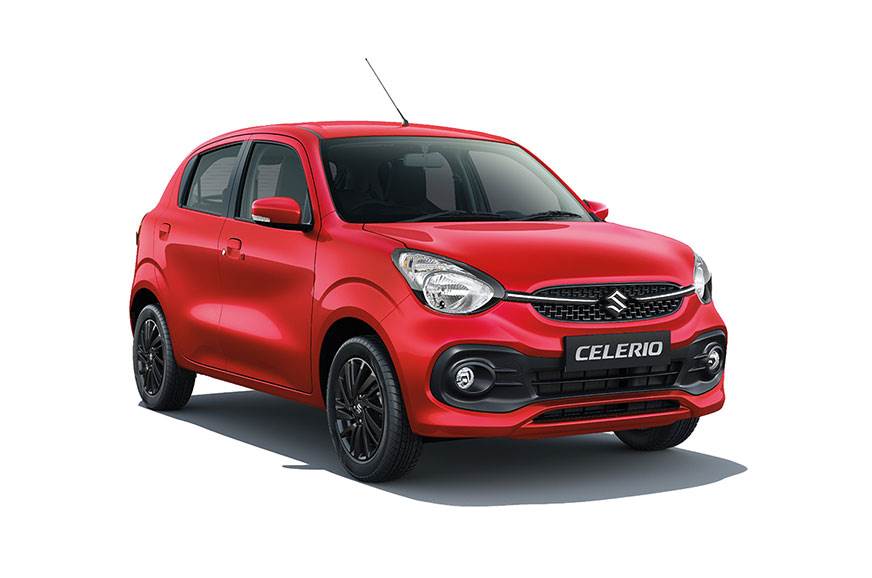Our first drive of Maruti's Celerio; both manual and EZ Drive automatic versions impressed us by ticking all the right boxes.
The design of the dashboard conforms to Maruti’s template and hence is well laid-out and functional. There’s a U-shaped centre console that houses the audio system and air-con controls, while the gear lever comes positioned high up too (ala the Maruti Ritz and Hyundai i10) making it easy to reach. The black plastics on the dashboard top also contrast well with the beige ones used elsewhere in the cabin. But it must be said, overall fit and finish is still not as good as it could have been; we expected a bit more. There is, however, a fair amount of space for small items in the cabin. You get two cupholders up front, a bottleholder each on the rear doors and another recess to hold a bottle behind the handbrake. The glovebox though is not too large. Boot space, at 235-litres, is decent but the high loading lip could be a bother. All but the base LXi variant get a 60:40 split rear seats that folds forward, should the need to carry more luggage arise.
A few driving holidays aside, the Celerio will primarily find use in the hustle and bustle of our cities. So how is it as a city car? Pretty good actually. The Celerio comes with an updated version of the Wagon R’s K10 three-cylinder, 1.0-litre engine. Chief among the changes are the adoption of drive-by-wire, higher compression in the cylinders, redesigned valves and springs (to lower friction) and also the use of a low viscosity engine oil ala Honda. The K10B, as it is called here, also uses higher pressure injectors and features a modified inlet that has granted the engine a wider spread of torque.
Anyone familiar with the standard K10 will immediately notice the big improvement over the old unit - Maruti has really done a good job here. There’s decent power at low engine speeds, the motor is responsive and the engine’s quiet enough till 3000rpm too. Some of the credit for this also goes to the noise absorbing insulation on the firewall between the engine and passenger compartment. Like all of Suzuki’s K-series engines, the K10B likes to be revved, but this considerably increases the noise levels. The engine sounds increasingly thrashy when you approach its 6100rpm rev limiter, most noticeable when you drive it with a heavy right foot. Performance is better than expected. We did a quick test and were surprised; 0-100kph for the manual comes up in 14.9 seconds, which is up there in comparison to cars in its class.
The Celerio also debuts Suzuki’s new five-speed gearbox that is 3.5kg lighter than the one on the Alto K10 and Wagon R. Gearshifts are positive and an improvement over the older gearbox, but the lever still needs some bit of extra effort to slot in. It’s not as light to use as an i10. Also, the three-cylinder engine tends to get into an area of stall at low engine speeds, so you do need to slip the clutch at times and use a bit of throttle when starting out.





Comments
Member Login
Personal Details
No comments yet. Be the first to comment.